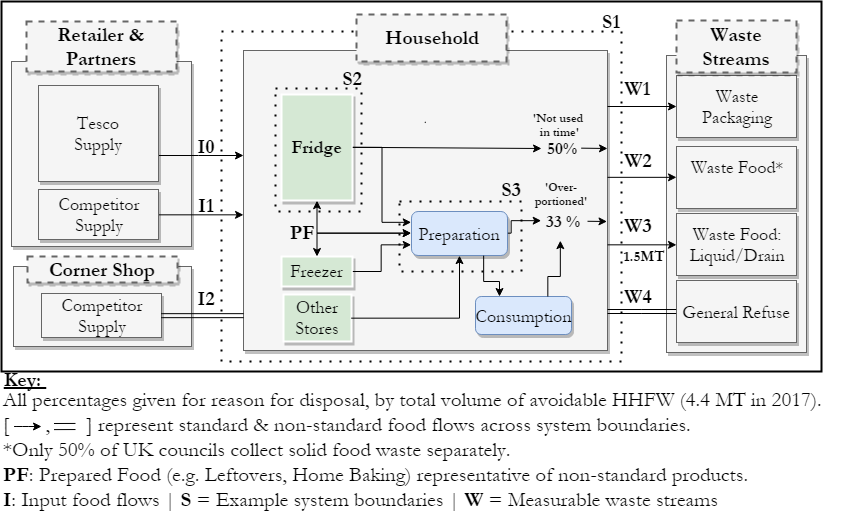Smart Fridge

Each year £13bn of perfectly food is thrown away in households across the UK (making up 70% of the total disposals from the entire food supply chain), with an equivalent in CO2 emissions to that of ¼ of all private car journeys in the UK (WRAP 2017). Just under half of this (£5.6bn) is thrown away because it is ‘not used in time’ - a diagnosis which (viewing the kitchen as a meal-manufacturing facility) implies a significant failure of inventory management. The aim of the ‘Smart Fridge’ project is therefore to develop a demonstrator to investigate the potential for technological solutions to help consumers monitor and manage their food inventory in the home. This approach with previous efforts to tackle household food waste, which have focused on either consumer education or changes to the value offering (e.g. changes to packaging, elimination in multibuy offers on fresh produce). The current system combines a ‘smart-fridge’ - performing object recognition by machine learning classification to track food inventory and monitoring storage temperature – with a mobile app companion to aid management & promote actions to reduce food waste (e.g. prioritisation of food to encourage First In, First Out usage; recipe suggestions based on short-life food; setting of re-order points for smart replenishment of staple foods to help to avoid excess purchasing). A specific focus is currently being placed on the opportunity for retailers to become more involved in this area, both due to the value of their Point-of-Sales data as a potential foundation for an inventory database, but also due to the additional opportunities which smarter food management might offer beyond food waste reduction – for example, the opportunities for optimisation of last-mile logistics offered by a social network of fridges, collectively optimising re-ordering. The project is being undertaken by Chris Barton from DIAL in collaboration with the Open Innovation team at Tesco Labs.









